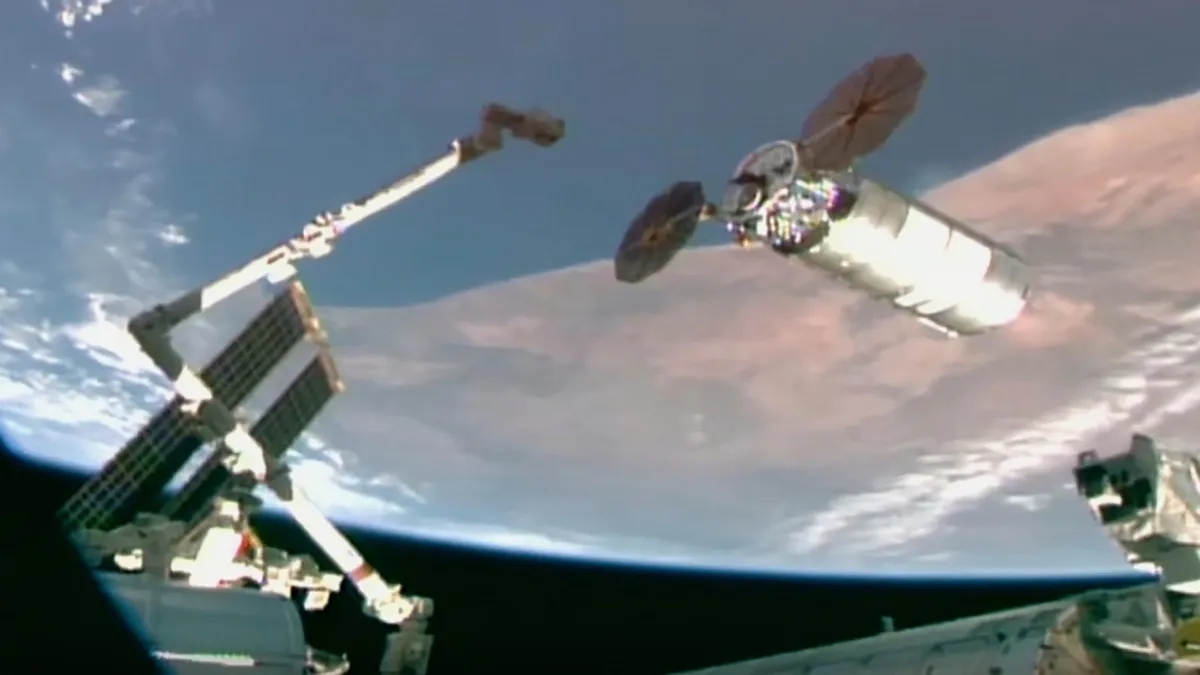
CAPE CANAVERAL, Fla. -- A critical supply ship has successfully arrived at the International Space Station (ISS) on Thursday, following a one-day delay caused by an unexpected engine shutdown. This important delivery was made possible by the skilled astronauts aboard the ISS, who utilized the station’s robotic arm to retrieve Northrop Grumman’s Cygnus capsule from orbit while the station passed over Africa.
The 11,000-pound (5,000-kilogram) shipment was initially scheduled to reach the ISS on Wednesday, just three days after its launch from Florida. However, during the capsule’s ascent, its main engine experienced a premature shutdown, delaying the mission. Engineers conducted a thorough investigation and determined that an overly conservative software setting was responsible for the untimely engine failure.
This mission marks the inaugural flight of the extra-large version of the Cygnus capsule, which is filled with essential supplies, including food, scientific experiments, and vital equipment for the space station’s toilet system and other operational needs. The Cygnus capsule plays a vital role in maintaining the ISS and ensuring that astronauts have everything they need to conduct their research and live comfortably in space.
NASA has established contracts with both Northrop Grumman and SpaceX to ensure the ISS remains well-stocked with necessary supplies. In addition to these partnerships, Russia also contributes to the supply chain, and Japan is set to resume its delivery operations shortly. This multi-faceted approach helps maintain a steady flow of resources to the orbiting laboratory.
Northrop Grumman has named its latest capsule the S.S. Willie McCool, honoring the pilot of the ill-fated 2003 flight of the space shuttle Columbia. This tribute serves as a reminder of the sacrifices made in the pursuit of space exploration and the ongoing commitment to safety and innovation in the aerospace industry.
The successful arrival of the Cygnus capsule at the ISS highlights the importance of international collaboration in space missions and the constant advancements in technology that enable these remarkable achievements.
The Associated Press Health and Science Department is supported by the Howard Hughes Medical Institute’s Department of Science Education and the Robert Wood Johnson Foundation. The AP is solely responsible for all content.